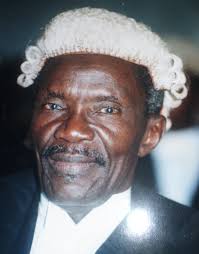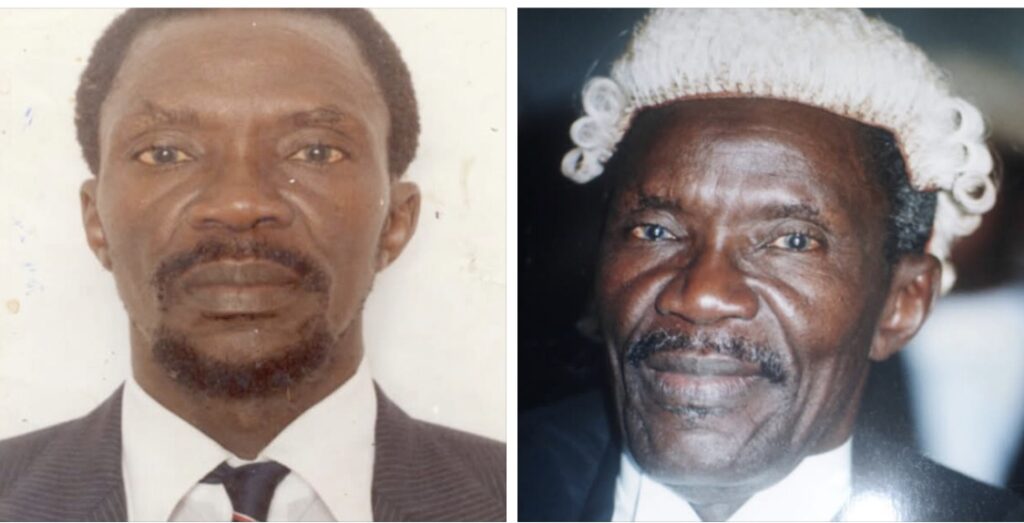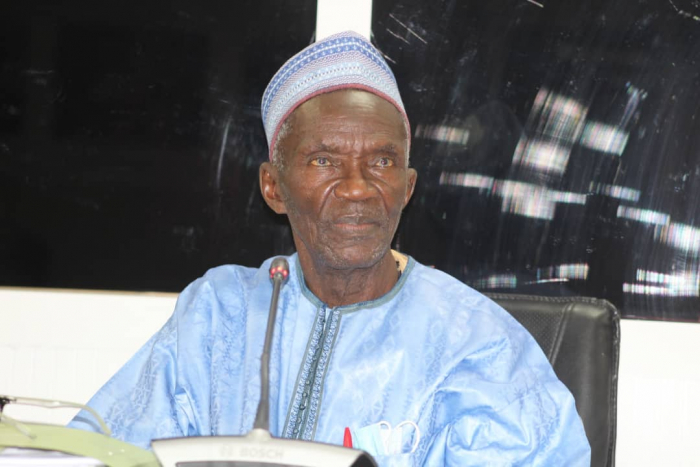
Inna lillahi wa inna ilayhi raji’un.
Today, The Gambia mourns the passing of one of its greatest sons, Lawyer Fafa Edrissa M’Bai. His death is not merely the loss of an individual; it is the extinguishing of a star whose light guided generations.
As I pen this tribute, I am reminded of the words of Shakespeare: “When he shall die, take him and cut him out in little stars, and he will make the face of heaven so fine.”
Fafa’s brilliance, like those celestial bodies, will forever illuminate the path for generations to come.
Fafa Edrissa M’Bai was no ordinary man. Founding member of the prestigious Fana Fana Chamber, he served as Attorney General and Minister of Justice in both the PPP regime and the Armed Forces Provisional Ruling Council (AFPRC).
His legal career, marked by contradictions and paradoxes, saw him become one of his generation’s most critical intellectual anchors in the realms of law and political science.
A village boy turned sophisticated legal scholar, Fafa’s transformation exemplified the limitless potential of determination and intellect. His unique blend of radical Marxist philosophy and conservative political ideology only added to the intrigue of his multifaceted persona.
Attorney Emeritus Fafa Edrissa M’Bai was a man of infectious joy, sterling character, and unparalleled intellect. His prowess at law earned him reverence as one of The Gambia’s most brilliant legal minds and an influential jurist whose legacy transcends borders. To celebrate him is to risk descending into sycophancy, yet his life’s work demands recognition that borders on the poetic—he was simply that extraordinary.

Fafa’s intellectual journey was paralleled by that of his dear friend and high school classmate, the late Professor Lamin Sanneh. A towering figure in his own right, Sanneh was a scholar of missions and religious studies, serving as the D. Willis James Professor of Missions and World Christianity at Yale Divinity School and a professor at Harvard.
Like Fafa, Sanneh’s work bridged worlds, exploring the intersections of faith, history, and identity. Together, they represented the best of Gambian intellectualism, their lives a testament to the power of education and the pursuit of truth. Now reunited in eternity, their spirits undoubtedly continue their discourse, lifting each other and us all.
Fafa’s literary contributions, including Senegambian Insight and The Service of My Beliefs, reflect his deep connection to his community and his people. His writings explore the history of Senegambia, issues of identity formation, and the colonial policies that shaped the region.
Far from being an ethnic jingoist, Fafa’s work celebrates the richness of his heritage while addressing universal themes. In this, he mirrors the timeless relevance of Shakespeare, whose works continue to resonate across cultures and eras. His literary creativity and intellectual rigor cement his reputation as both a legal and literary giant.
Within the legal profession, Fafa’s contributions were ubiquitous. As an advocate of the Supreme Court of The Gambia and a member of the Gambian Bar Association, Fafa’s influence extended far beyond the courtroom.

He was frequently invited as amicus curiaeby Gambian courts, solidifying his reputation as one of the foremost authorities on constitutional law. His oral arguments before the Court of Appeal of The Gambia and the Judicial Committee of the Privy Council in London set a precedent for excellence until the establishment of the Supreme Court in the Second Republic.
In his legal philosophy, Fafa bore a striking resemblance to Lord Denning, the celebrated English judge known as “the people’s judge.” Like Denning, Fafa was unafraid to challenge conventions, his judgments and writings reflecting a deep commitment to justice, fairness, and the rule of law.
Both men shared a belief in the transformative power of the law, using their intellect and creativity to shape legal thought and practice.
Fafa’s light did not fade into obscurity. Like the constellations that decorate our night skies, his brilliance will forever guide us, a beacon of hope and inspiration.
In his passing, we are reminded of the profound words of John Donne, “No man is an island, entire of itself.” Fafa was a bridge—linking generations, ideologies, and communities—embodying the spirit of collective progress and shared destiny.

Critics often fail to see the broader context of Fafa’s service. During the PPP era, he established the Evaluation of Assets and Prevention of Corruption Commission, advocating against corruption and injustice. Under the AFPRC, he condemned human rights abuses and stood firm against injustice, illustrating his unshakable integrity and patriotism. His literary works, including his reflections on history, leadership, and justice, showcase his lifelong dedication to illuminating paths toward intellectual freedom and fairness.
This moment of mourning is also a moment of reflection. Let us not only remember Fafa Edrissa M’Bai s extraordinary achievements but also commit ourselves to uphold the values he cherished—justice, integrity, curiosity, and courage.
Fafa’s life reminds us that greatness is not defined by the absence of criticism but by the strength of one’s convictions and the enduring impact of one’s work.
As The Gambia bids farewell to this remarkable man, let us honor his memory by striving to create the kind of world he envisioned—a world of fairness, intellectual freedom, and collective progress. His light has dimmed, but the legacy of his brilliance will continue to shine in the hearts and minds of all who were touched by his life. May his soul rest in eternal peace.
By Alagi Yorro Jallow











Recent Comments